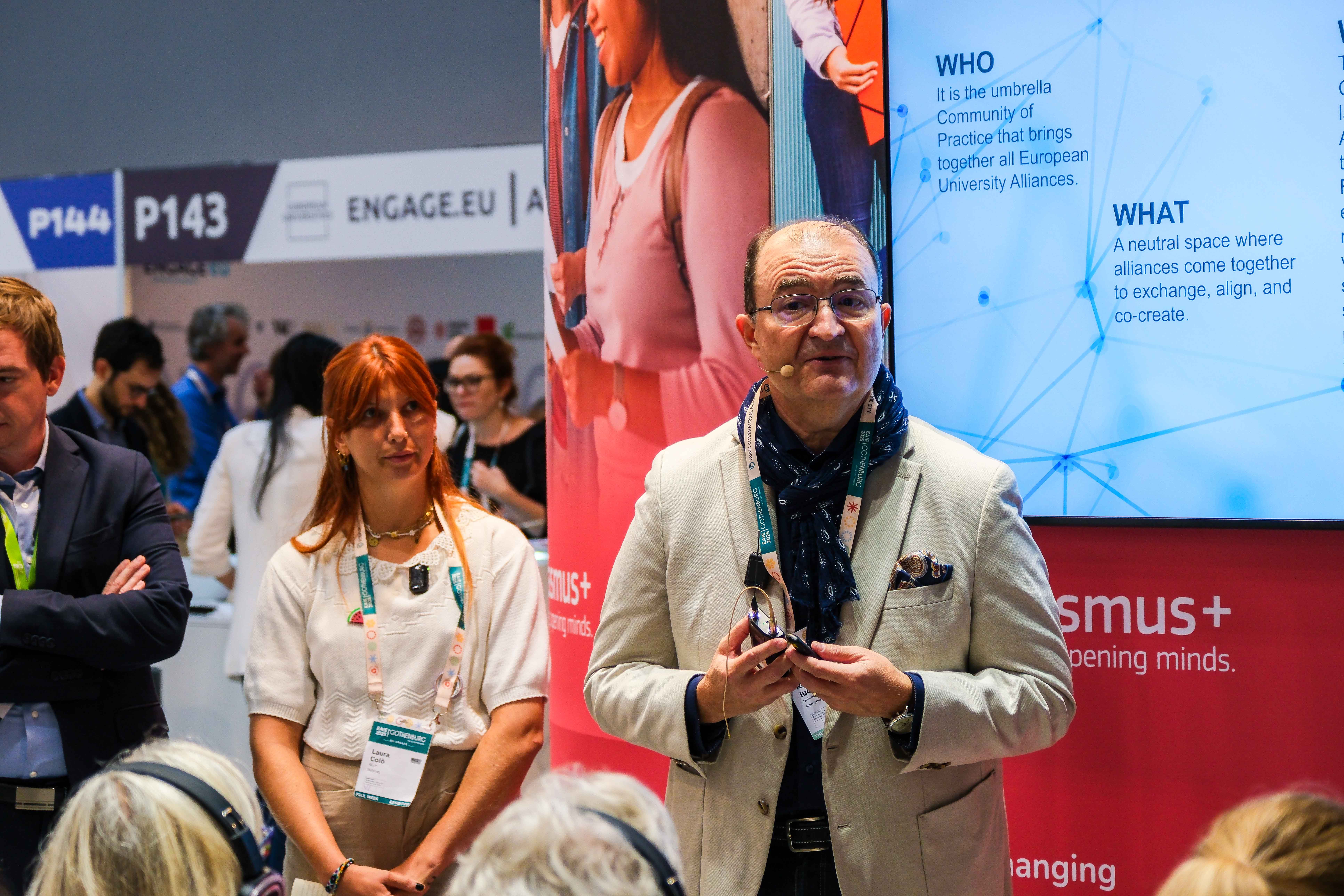Students must be at the centre of the development of the European Degree

Its not enough to have an ED as an outcome of the restructuring process supported by the external needs coming from different sources / stakeholders: social, political, or professional – we need to identify educational reasons which will be able to enhance the attractivity, motivation, and deep involvement of all categories of students: even traditional or non-traditional – we need to put students’ needs into the centre of this process, because without students’ engagement and educational or pedagogical innovation integrated into the process, we cannot be able to expect significant results on the long term. On the short term, the ED will be well received by the academic community, but we need to think further, we need more...
I think that it will be very important to reflect on the main relevant purpose for the ED, which is to support our alliances and all HEIs to enter, with empowered chances to compete, into the global competition. I am sure that your minds are crossed nowadays by different thoughts related to the military competition – I am not thinking on that kind... The competition of the future, certainly, will be a scientific one, but, in order to avoid another military competition, it will be significantly important to establish a deep and relevant connection with a high-class education, and at this chapter, the ED could play a fundamental role. Reflecting to the future of skills, skills and values, we will be in a risk if we follow a single administrative path based only on procedures (evaluation, certification), so, we need more... what does “more” mean?
There are people from outside the alliances which are thinking that the ED’s application might generate a kind of standardisation... I am wondering myself and I am also rolling-over the question to you: Can’t we be creative through the ED label or a real degree?
The answer could be certainly: Yes, but we need more...
In our opinion, the CIVIS Alliance team’s and mine, inclusivity and flexibility are becoming extremely relevant. Why inclusivity and why flexibility? Because we believe that both might generate possible solutions or could open windows (amongst others) to creative and innovative European study programmes and degrees, as part of the University Alliances’ academic offer.
From inclusivity and cosmobility to transclusivity
Inclusivity, next to “cosmobility” and “superdiversity”[1], are becoming a constellation of features able to describe the complexity of the alliances. During our annual event this year, in June, in Rome, CIVIS proposed a new approach called “transclusivity”, considering a range of relevant meanings through which this new epistemological approach could be operationalised. It is important to note that “transclusivity” could cover the vast transformational perspective of the alliances, which offer all students not only the right of access to education, but also the right of success in education. This can become the best or the highest quality educational offer at alliances level, facilitated by the ED as well: both access to and success in the best learning experiences. But we need more...
Flexible pathways
Yes, indeed, we also need flexibility, which is accompanying inclusivity on the road to create adaptable, customised, and highly motivational pathways / academic routes for all European and non-European students, interested to achieve the most relevant degree for their career. In this context, we have to underline that the most significant results are to create innovative pathways, based on learning arrangements, using the potential of innovative pedagogies. But, of course, we need more...
Could the new perspective on the ED label accommodate and incorporate these two aspects: inclusivity and flexibility? I would say so, yes. In CIVIS, we initiated this new philosophy very early, back when we designed the overall academic and educational framework of the alliance as a comprehensive image / landscape, and we continued moving forward on this direction, believing that we could achieve this.
But, of course, not only CIVIS is on this road to this “MORE”, as our Topical Group is also reflecting on finding out future pathways, because, as you could guess, we need more!
Professor Romita Iucu is the President of the Board of Trustees of the University of Bucharest, a CIVIS Member University. He is part of the FOREU4ALL Board and co-chair of the FOREU4ALL group on the European Degree.
[1] VLIR. (2024). European University Alliances: Drivers of Change and Innovation in Higher Education. Summary, Conclusions and Recommendations. Vlaamse Interuniversitaire Raad (VLIR). https://vlir.be/publicaties/european-university-alliances-drivers-of-change-and-innovation-in-higher-education-summary-conclusions-and-recommendations/
